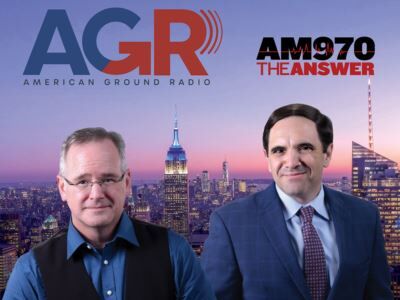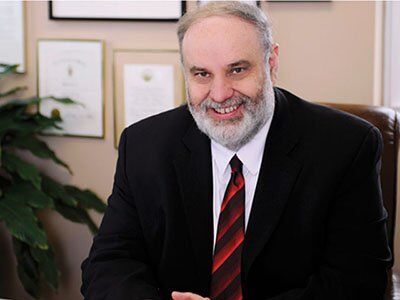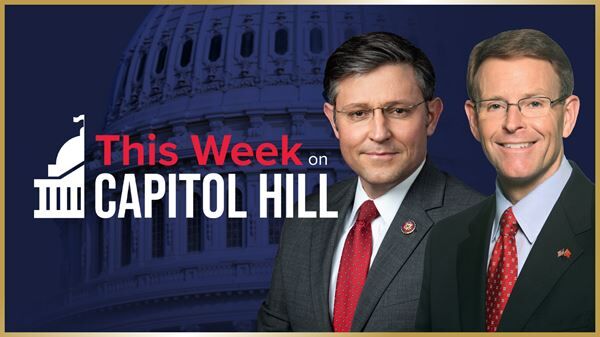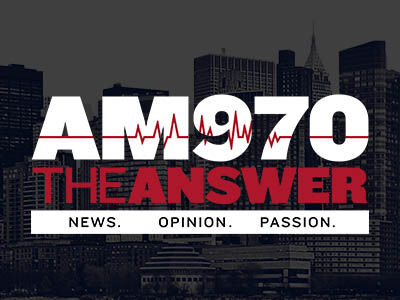The sparse indictment of Comey by Trump's Justice Department belies a complicated backstory
News > National News

Audio By Carbonatix
1:51 PM on Saturday, September 27
By BYRON TAU
WASHINGTON (AP) — The indictment of former FBI Director James Comey is only two pages and alleges he falsely testified to Congress in 2020 about authorizing someone to be an anonymous source in news stories.
That brevity belies a convoluted and contentious backstory. The events at the heart of the disputed testimony are among the most heavily scrutinized in the bureau's history, generating internal and congressional investigations that have produced thousands of pages of records and transcripts.
Those investigations were focused on how Comey and his agents conducted high-stakes inquiries into whether Russia was helping Republican Donald Trump’s campaign during the 2016 presidential race against Democrat Hillary Clinton and her use of a private email server while she was secretary of state.
Here are some things to know about that period and how they fit into Comey’s indictment:
The indictment alleges that Comey made a false statement in testimony before the Senate Judiciary Committee. The single quote from the indictment appears to be from an interaction with Sen. Ted Cruz, R-Texas.
Prosecutors contend Comey lied when he denied having authorized anyone at the FBI to be an anonymous source to the media. In fact, prosecutors allege, he had done that very thing by telling someone -- identified as “Person 3” in the indictment -- to speak to reporters.
“It’s such a bare-bones indictment,’ said Solomon Wisenberg, a former federal prosecutor and now a defense attorney in private practice. “We do not know what the evidence is going to be" at trial.
Wisenberg said the testimony in question appears to have come when Cruz was pressing Comey over the role that his deputy director, Andy McCabe, played in authorizing a leak to the Wall Street Journal for a story examining how the FBI handled an investigation into Clinton's use of a private email server when she was secretary of state.
Cruz’s question was complicated, but it boiled down to pitting Comey against McCabe. The senator noted that Comey told Congress in 2017 that he had not authorized anyone to speak to reporters. But Cruz asserted that McCabe had “publicly and repeatedly said he leaked information to the Wall Street Journal and that you were directly aware of it and that you directly authorized it.”
“Who’s telling the truth?” Cruz asked.
Comey answered: “I stand by the testimony you summarized that I gave in May of 2017.”
At that time, Comey had been put on the spot by Sen. Charles Grassley, R-Iowa. Comey was asked whether he had “ever authorized someone else at the FBI to be an anonymous source in news reports about the Trump investigation or the Clinton investigation.”
Comey answered, "No.”
The indictment says Comey falsely stated that he had not “authorized someone else at the FBI to be an anonymous source in news reports,” but Comey appears not to have used that exact phrasing during the 2020 hearing at issue, potentially complicating efforts to establish that he made a false statement.
“Person 3” is not identified in the indictment, but appears to have been discussing an investigation related to Clinton, based on a clearer reference in a felony charge that grand jurors rejected. Comey figured in several inquiries into alleged leaks in the Clinton investigation, all of which generated extensive paper trails.
One involved McCabe and the Journal story. McCabee told the Justice Department's inspector general that he had authorized a subordinate to talk to the Journal reporter and had told Comey about that interaction after the fact.
It's unlikely the indictment is focused on that episode because McCabe never told investigators that Comey had authorized him to talk to the media, only that the FBI director was aware that McCabe had done so.
Two other leak investigations involved a friend of Comey’s who served for a time as a paid government adviser to the director. That adviser, Daniel Richman, has told investigators he spoke to the media to help shape perceptions of the embattled FBI chief.
Richman, a law professor at Columbia University, was interviewed by FBI agents in 2019 about leaks to the media that concerned the bureau’s investigation into Clinton. Richman said Comey had never authorized him to speak to the media about the Clinton investigation but he acknowledged Comey was aware that he sometimes engaged with reporters.
Comey has acknowledged using Richman as a conduit to the media in another matter. After Comey was fired by Trump in 2017, he gave Richman a memo that detailed his interactions with the president. Comey later testified to Congress that he had authorized Richman to disclose the contents of the memo to journalists with the hopes of spurring the appointment of a special counsel who might investigate Trump.
Trump and Comey have been engaged in a long-running feud. Trump blames Comey for having started an investigation into Russia’s meddling in the 2016 campaign that led to the appointment of special counsel Robert Mueller. Mueller spent the better part of two years investigating whether Trump’s campaign colluded with the Kremlin to help him win the White House.
In the end, Mueller uncovered no evidence that Trump or his associates criminally colluded with Russia, but found that they had welcomed Moscow’s assistance. Trump has long vented about the “Russia hoax,” which shadowed and defined the early years of his first term.
Trump has spent the ensuing years bashing Comey and saying he was worthy of being charged with treason.
Just days before the indictment, Trump publicly urged his attorney general, Pam Bondi, to act against Comey and two other perceived Trump enemies: “We can’t delay any longer, it’s killing our reputation and credibility,” Trump posted on social media last week. “JUSTICE MUST BE SERVED, NOW.”
Within hours of the indictment being returned, Trump turned again to social media to gloat: “JUSTICE IN AMERICA! One of the worst human beings this Country has ever been exposed to is James Comey.”
Comey has hardly backed down, criticizing Trump on a host of matters. In a 2018 memoir, “A Higher Loyalty,” Comey compared Trump to a mafia don and said he was unethical and “untethered to truth.”
Like Trump, Comey took to social media after his indictment.
“My family and I have known for years there are costs to standing up to Donald Trump,” he said. “My heart is broken for the Department of Justice, but I have great confidence in the federal judicial system, and I’m innocent. So, let’s have a trial."
___
Associated Press writer Eric Tucker contributed to this report.










